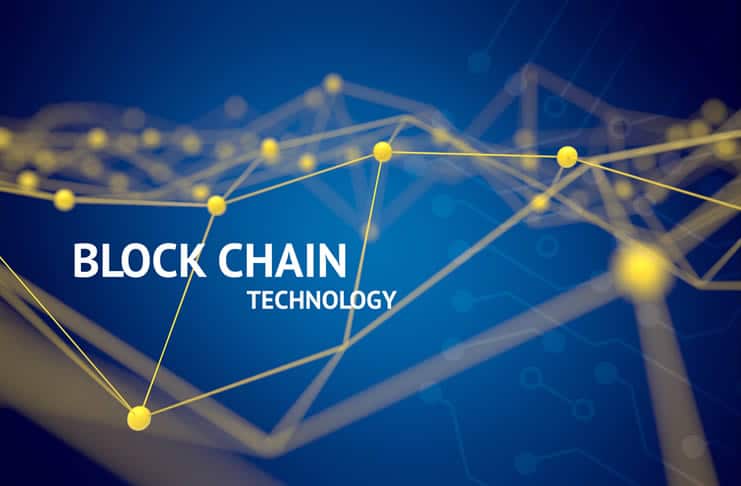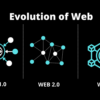The EU wants to become an innovator in blockchain and a home to significant platforms, applications and companies.
“Blockchain technology allows people and organisations who may not know or trust each other to collectively agree on and permanently record information without a third-party authority. By creating trust in data in ways that were not possible before, blockchain has the potential to revolutionise how we share information and carry out transactions online.
The European Commission’s strategy is designed to meet these goals. It wants to support a ‘gold standard’ for blockchain technology in Europe that embraces European values and ideals in its legal and regulatory framework.”
— Excerpt from the European Commission — Shaping Europe’s digital future
READ ALSO La blockchain pour le passeport numérique de l'UE ?
Blockchain is one of the Multi-Country Projects that will pave the way to Europe’s Digital Decade
European Union, EBSI
The European Blockchain Services Infrastructure (EBSI) was born in 2018 when 29 countries (all EU members states, Norway and Lichtensein). The EU Commission have joined forces to create the European Blockchain Partnership (EBP).
The Commission has identified an initial list of 10 areas of investment for multi-country projects. The European Blockchain Services Infrastructure (EBSI) is one of them.
Blockchain is a shared, immutable ledger that facilitates the process of recording transactions and tracking assets in a business network. An asset can be tangible (a house, car, cash, land) or intangible (intellectual property, patents, copyrights, branding). Source: IBM
Unique features of blockchain: Decentralised, Trustless, Transparent, Immutability.
Blockchain for public services and public policy: why
A blockchain-based infrastructure offers a number of advantages (decentralized model):
- Future-proof solutions for public services for web 3.0 and evolution of the digital economy,
- Trust and efficiency gains in multiparty and traceability processes,
- Improved identification processes, issuance of certificates and official documents,
- User centric approach where users remain in control of the data they share,
- Enhanced security and privacy with no single point of failure or gateway.
The European Commission is looking for novel blockchain solutions for the European Blockchain Services Infrastructure. The first solution design phase was completed by 7 contractors. Procurement contracts for the second phase have been awarded to 5 contractors and phase 2A ‘prototype development and lab testing’ is now ongoing.
The phase 2A of prototype development and lab testing has been awarded to the following 5 contractors:
Phase 2A, which lasts six months, concentrates on research, prototype development, and lab testing. Following these six months, an evaluation will be made by the European Commission on the technical results and progress of the participating projects; based on this evaluation, a minimum of three projects will be selected to move on to Phase 2B, final solutions development and field testing, which is expected to last another year.
Cross-border services across multiple domains — Use Cases
This is done notably through the establishment of electronic ledgers as new qualified trust services, as proposed in the EU digital identity regulation.
EBSI is going to implement the EU digital identity regulation and the EU digital wallet:
Track and Trace (SMEs Financing, Document Traceability) — Ensuring the integrity and tracing the evolution of data or documents; monitoring of products in the supply chain through their digital passport.
Trusted Data Exchange (Asylum Process Management, Trusted Data Sharing) — Enhancing the implementation EU policy and compliance procedures between administrations e.g. for asylum demand management or exchange of VAT number for import products.
IP Management — Facilitating right holders checking and management of intellectual property.
Verifiable Credentials (Self-sovereign Identity, Social Security, Diploma) — Giving control back to citizens when managing their credentials, such as diplomas or posting certificates for mobile workers linked to their digital identity, significantly reducing verification costs and improving authenticity trust.
Source: European Blockchain Services Infrastructure
Ongoing EBSI work is currently focusing mainly on developing use cases that can be implemented relatively easily by using existing blockchain technology. The tendering for the PCP started end 2020, with the objective to lead to the deployment of solutions within the next three years.
Phase 1: A new way of sharing information
We live in the most technology advanced societies that ever existed, however… Verification of documents and information remains challenging. Authentic data sources are now digital and online. But real-time access is often not possible, this is done by intermediaries.
Money laundering through falsification — 17 billion 110 billion euros are said to be laundered in the European Union through the forging of documents.
Illegal products and counterfeits — 17 million According to a report by the European Commission, last year, customs seized 17 million items (e.g. counterfeits) at the borders of Europe for a total value of 740 million euros.
Stolen / lost documents — 30 million In the last years, Interpol has seen a sharp uptick in the number of missing passports — within Europe and around the globe. In Europe the amount reached 30 million in 2015 and +60 million in the world. The latest would be estimated to 89 million in 2020 (Interpol).
Fake labels on food and beverage — 20% One in five labels in Europe would be false and therefore show a lack of compliance with European rules.
Source: European Blockchain Services Infrastructure
Since the beginning of the online revolution, validating with complete confidence the real identity of people in a digital environment has been a problem both for users, who have had their privacy and control over their personal data removed, and for companies that have suffered the cost of inefficient and constant identification security failures.
A decentralized self-rule identity service based on Blockchain provides people control over their identity and facilitate secure user access to online services. The digital identity and attribute verification solution in compliance with GDPR and impacting on customer onboarding processes, KYC (Know Your Customer) and AML (Anti Money Laundering).
EU invests in technology that can help to easily verify documents and information. Documents are easy to fake and difficult to verify. EU invests in technology that can help to easily verify documents and information based on three key technologies: Verifiable Credentials, Blockchain, and Digital Wallet.
Smart contracts are simply programs stored on a blockchain that run when predetermined conditions are met. They typically are used to automate the execution of an agreement so that all participants can be immediately certain of the outcome, without any intermediary’s involvement or time loss. They can also automate a workflow, triggering the next action when conditions are met. (Source: IBM)
Phase 2: Digital product passports for digital waste recycling
In the coming months, use cases related to digital product passports for digital waste recycling and the cross-border management of IP rights for creative work will be testing. Such use case application developments will be done in partnership with specialized partners.
Contractors will be working on research for adapting and improving the protocol, ranging from identity and Internet of Things (IoT) to tokenization and decentralized governance. Five main areas have been highlighted for research, development, and testing for EBSI:
- Scalability. To be a blockchain infrastructure for Europe, scalability must be at the heart of the European Blockchain Services Infrastructure to complement its committee-based smart contract protocol.
- Consensus. A robust consensus mechanism — how a blockchain authenticates and validates transactions without relying on a central authority — is an integral part of decentralization.
- Governance: As a cross-border platform, EBSI needs to be trusted by public institutions, businesses, and citizens across the member countries of the European Blockchain Partnership (EBP) with their data for providing different services.
- Identity: To ensure the highest possible levels of privacy and security on a Europe-wide blockchain infrastructure, contractors aim to integrate their solution with the new framework for EU digital identity proposed by the European Commission. This will allow businesses and citizens to have more control over their data while providing verified credentials for different public and private services running on the EBSI network.
- Interoperability: Along with scalability, openness, and decentralization, excellent interoperability is one of the aims of the European Blockchain Services Infrastructure.
The Internet of Things (IoT) is the concept of connecting any device (so long as it has an on/off switch) to the Internet and to other connected devices. The IoT is a giant network of connected things and people. Source: IBM
The research areas listed above will be accompanied by a variety of further developments, ranging from third-party integrations to advancing the topic of post-quantum encryption.
Based on the outcome of the lab testing, at the end of Phase 2A a minimum of three projects will be chosen for Phase 2B, the final stage of the pre-procurement period, where the capabilities of the newly developed infrastructure and applications will be field-tested.





